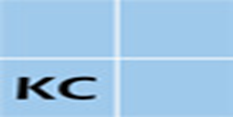Shariah-compliant Solutions to Global Economic Inequality
Keywords:
Shariah-compliance, Economic inequality, Zakat, Waqf, Islamic finance, Ethical finance, Financial inclusion, Poverty alleviationAbstract
Abstract: The persistent issue of global economic inequality poses significant challenges to social cohesion, economic stability, and sustainable development. This research explores Shariah-compliant solutions that can address these inequalities while promoting ethical finance and economic justice. By examining concepts such as zakat (almsgiving), waqf (endowment), and risk-sharing financial instruments, this study highlights how Islamic finance principles can contribute to equitable wealth distribution and social welfare. The findings suggest that integrating these Shariah-compliant mechanisms into contemporary economic systems could enhance financial inclusion, support poverty alleviation, and foster economic empowerment in disadvantaged communities. This study explores Shariah-compliant solutions—zakat, waqf, and Islamic microfinance—as effective mechanisms for addressing global economic inequality. By examining their impact on poverty alleviation, financial inclusion, and community empowerment, the research highlights their potential to promote social justice and sustainable development in marginalized communities worldwide.
























